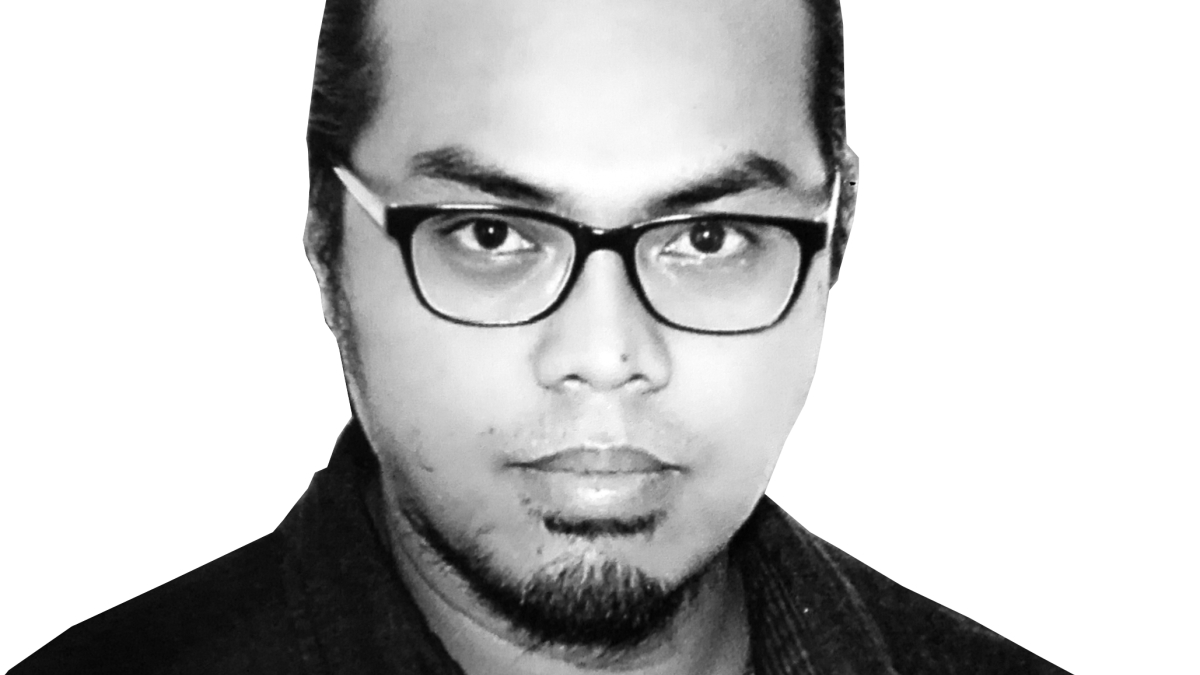Complex adaptive systems grad plans to bring biomimicry to his home country

The School of Complex Adaptive Systems selected Louwie Gan as this spring's Outstanding Graduate Student.
Editor's note: This story is part of a series of profiles of notable spring 2021 graduates.
When Louwie Gan learned of biomimicry, he knew it was the key to engineering more symbiotic, sustainable solutions to infrastructure woes, particularly those within his home city of Manila, Philippines. But it wasn’t always this way.
Growing up in Manila, a young Gan viewed bustling city streets as avenues for cars — and cars only. He recounts feeling like the pedestrians and street vendors simply took up space, that they were out of place and even inhibited vehicular traffic. But when he began studying architecture, infrastructure and urban planning, he quickly became aware of the socioeconomic and environmental repercussions of an infrastructure centered around those with privilege.
“When you provide infrastructure for (only) cars, you are actually creating inequality,” Gan said. He notes that many of the low-income Filipinos who live within the city do not have access to the funds and resources necessary to own and maintain their own vehicle, making getting from Point A to Point B in Metro Manila extremely difficult on roads designed with only cars in mind. The solution to these kinds of inequalities, he believes, can be developed from observing the systems and processes of the natural world and weaving that inspiration into urban design.
He took these fundamental ideas of equity and sustainability and used it to shape his career path, enrolling in the ASU College of Global Futures’ School of Complex Adaptive Systems. He is now graduating with his Master of Science in biomimicry, the next step in his mission is to become a certified biomimicry specialist through the ASU-Biomimicry 3.8 program. His ultimate goal is to lay the foundation for the practice of biomimicry throughout the Philippines, leading the charge on applying design and planning techniques as well as researching and engineering new ones.
Question: What was your “aha” moment when you realized you wanted to study the field you majored in?
Answer: During my college years as an architecture student, I was fascinated with green design and other sustainability concepts. This led me to pursue credentials such as LEED, WELL, EDGE, Sites, and other green initiatives to learn more about sustainability. Through these, I was introduced to biomimicry. Then the rest is history. I told myself, "I need to learn this field." So here I am.
Q: What is something you learned while at ASU — in the classroom or otherwise — that surprised you or changed your perspective?
A: I found that all our challenges that we are facing right now can be figured out if we look into nature. We just have to ask the right questions and dig deeper to find these answers.
Q: Why did you choose ASU?
A: My overall goal is to be a certified biomimicry specialist or professional. I also researched about the best school to learn biomimicry. ASU stands out among others because of the joint affiliation with Biomimicry 3.8. Choosing ASU was a major step for me to reach this goal.
Q: Which professor taught you the most important lesson while at ASU?
A: Even before I started the program at ASU, I had been watching a lot of YouTube videos about biomimicry where Professor of Practice Dayna Baumeister shared basic concepts. In my ASU experience, I learned all the fundamental courses through Baumeister. I am fortunate to have met her during the Biomimicry for Social Innovation Immersion Workshop in Slovenia in 2019. After this pandemic, I look forward to learning more from her in our next venture in the natural world.
Q: What is the best piece of advice you would give to those still in school?
A: To be more efficient in time management while maximizing learning, my advice is to reverse engineer it. This is reading first all the requirements needed for the week before reading and watching all the resources provided by the professor. I had been doing this process to avoid procrastination. In my experience, this saves time since I do not have to review the resources all over again to confirm if I correctly understood the topic as per assignments. However, I guess each of us has our style of doing things. More importantly, have fun and enjoy every minute at ASU!
Q: What was your favorite spot for power studying?
A: The L-shaped table at the corner of my room. My abode of peace and concentration.
Q: What are your plans after graduation?
A: No one practices biomimicry in my home country. I am thinking of creating a school where I can teach younger students, business professionals and others about nature-inspired thinking in solving any challenges that may arise. I am also considering creating a YouTube page discussing current events and how biomimicry thinking can help.
Q: If someone gave you $40 million to solve one problem on our planet, what would you tackle?
A: I would create a research and education center as a hub for innovative design and technology that revolves around improving social and environmental systems, especially poverty, pollution and wildlife protection.
More Environment and sustainability

ASU prof turns trash into treasure
The Research Corporation for Science Advancement, or RCSA, regularly hosts a series of discussions known as Scialog, a…

Best outdoor experiences are shared and build connections, recreation professor says
Steve Sassaman doesn’t really need to tell you he’s an outdoorsman. One look at his full, dark beard gives a vibe that clearly…

ASU offers new project-based courses for global leaders of tomorrow
Addressing complex challenges requires innovative solutions.This is why the College of Global Futures — with its four academic…